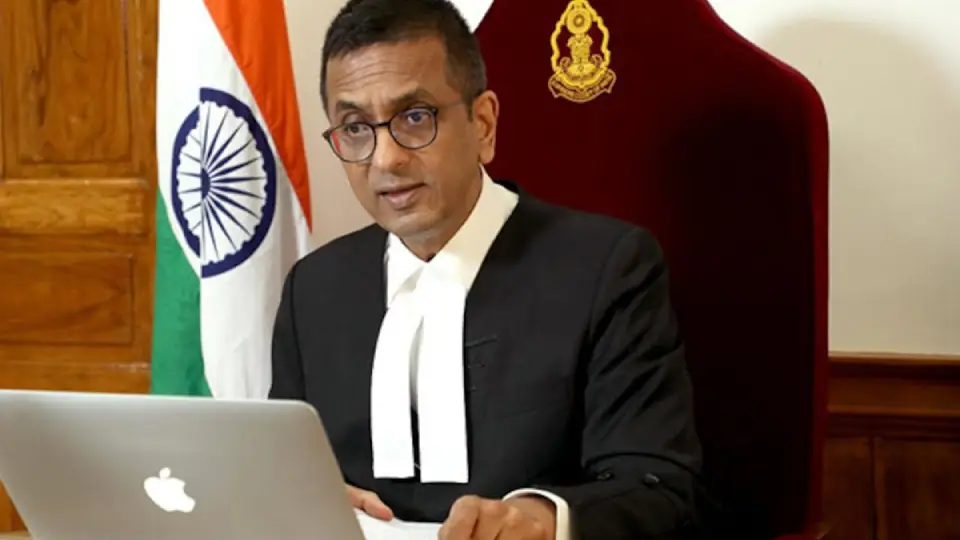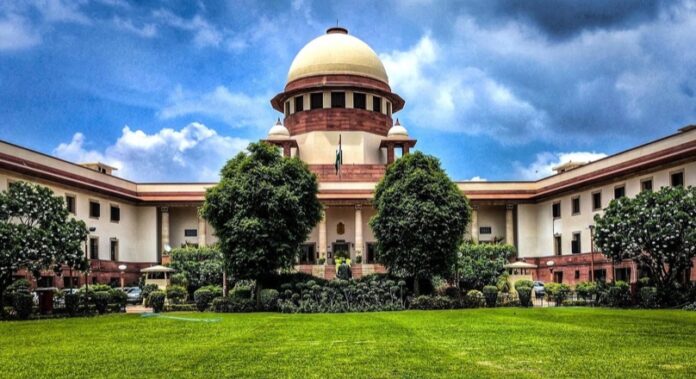In a significant ruling, the Supreme Court has deemed the Electoral Bonds scheme violative of Article 19(1)(a) and unconstitutional. The court has struck down the scheme and directed the State Bank of India (SBI) to provide details of electoral bonds encashed by political parties to the Election Commission of India (ECI).
This directive mandates the SBI to furnish such details to the ECI, which will subsequently publish the information on its website by March 31, 2024.
Furthermore, the Court has instructed the immediate halt of electoral bond issuance by the SBI, emphasizing the need for transparency in political funding.
“Not all political contributions are made with the intent to alter public policy: CJI Chandrachud”
Among its conclusions, the Court has deemed the Electoral Bonds scheme and related amendments to the Companies Act as unconstitutional.

The ruling also addresses concerns regarding the right to privacy of political affiliation, emphasizing that such privacy does not extend to contributions aimed at influencing public policy.
Financial support to political parties can lead to a quid pro quo arrangement: CJI Chandrachud
The decision, reached unanimously by a five-judge Constitution Bench led by Chief Justice of India D.Y. Chandrachud, highlights the critical importance of transparency in political financing and upholding democratic principles.
This landmark verdict marks a significant step towards ensuring transparency and accountability in political funding, a crucial aspect of democratic governance. By declaring the Electoral Bonds scheme unconstitutional, the Supreme Court has underscored the importance of upholding the principles of free and fair elections and protecting citizens’ right to information.
“Amendment to Section 182 of the Companies Act becomes otiose in view of our finding that the electoral bonds scheme is unconstitutional: CJI Chandrachud”
The ruling also addresses concerns surrounding unlimited corporate funding, highlighting the potential risks of quid pro quo arrangements in political financing. Additionally, the Court’s decision to deem anonymous electoral bonds violative of the right to information underscores the necessity of transparency in electoral processes.
Furthermore, the Court’s directive to disclose details of political party contributions aims to enhance transparency and enable informed electoral choices. This move is expected to promote greater accountability among political parties and strengthen the democratic fabric of the country.
Overall, the Supreme Court’s verdict represents a significant victory for transparency and accountability in political funding, reaffirming the fundamental principles of democracy.
Key Points of this News
- Supreme Court declares Electoral Bonds scheme unconstitutional, citing violations of Article 19(1)(a) and the Right to Information Act.
- SBI ordered to provide details of electoral bonds encashed by political parties to the Election Commission of India (ECI), to be published on the ECI website by March 31, 2024.
- Immediate cessation of the issuance of electoral bonds directed by the Court.
- Amendments to the Companies Act and other legislative provisions allowing corporate political funding deemed unconstitutional.
- Court emphasizes the importance of transparency in political funding and the need to prevent quid pro quo arrangements.
- Decision underscores the right to information as essential for electoral choices and participatory democracy.
- Unanimous verdict by a five-judge Constitution Bench led by Chief Justice of India D.Y. Chandrachud.
- Ruling follows extensive arguments and deliberations, with the verdict reserved on November 2, the previous year.



